Premium Only Content
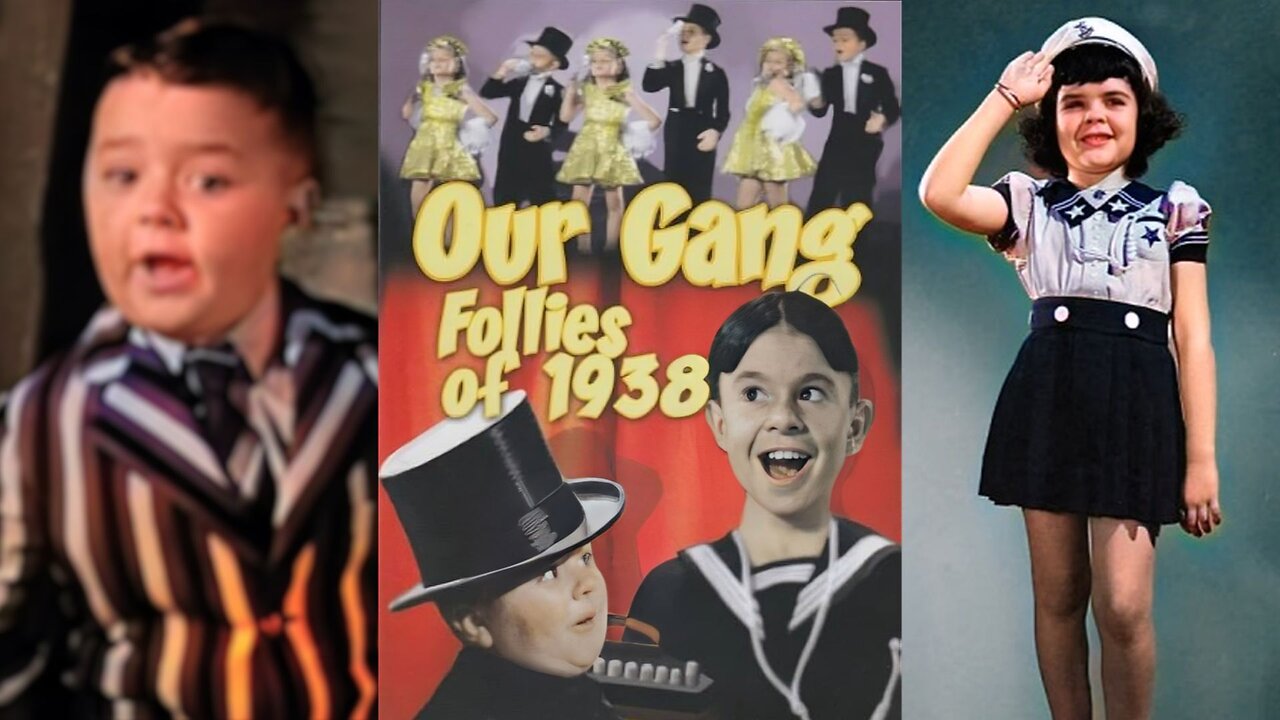
OUR GANG FOLLIES (1938) George McFarland, Carl Switzer, Darla Hood | Comedy | COLORIZED
Our Gang Follies of 1938 (later reissued as simply Follies of 1938) is a 1937 American musical short subject, the 161st short subject entry in Hal Roach's Our Gang (Little Rascals) series.[3] Directed by Gordon Douglas as a sequel to 1935's Our Gang Follies of 1936, the two-reel short was released to theaters on December 18, 1937, by Metro-Goldwyn-Mayer.
SYNOPSIS
The story begins with the gang, led by Spanky, excitedly preparing for their latest neighborhood show in Spanky's cellar. Alfalfa, known as the "King of the Crooners," is slated to be the star attraction. However, much to everyone's surprise, Alfalfa abruptly announces that he's done with crooning and wants to pursue a career in opera. This decision throws a wrench into the gang's plans, leaving them scrambling to figure out how to salvage the show.
After Alfalfa takes a nap backstage, he dreams of a grand future in opera where he envisions himself as a celebrated star. Yet, his dream takes a dark turn when he's heckled offstage and ends up destitute on the streets of New York. This unsettling dream prompts Alfalfa to reconsider his aspirations.
Meanwhile, Spanky, now imagining himself as a future Broadway producer, confronts Alfalfa about his operatic ambitions, warning him that he'll end up begging on the streets. Undeterred, Alfalfa remains convinced of his operatic destiny.
Things come to a head when Alfalfa awakens to find himself back in Spanky's cellar during the show, with the audience chanting for him to perform. Moved by the encouragement and fed up with opera, Alfalfa tears up his imagined contract and decides to join his friends onstage.
Alfalfa's return marks a turning point as he enthusiastically belts out Bing Crosby's "Learn to Croon" for the show's finale, showcasing his renewed passion for popular music. Ultimately, the gang's journey highlights the importance of staying true to oneself and embracing what truly makes one happy, even amidst dreams of grandeur. Alfalfa's realization underscores the significance of friendship and the joy found in shared experiences, culminating in a heartwarming and entertaining conclusion to their neighborhood spectacle.
CAST & CREW
Carl Switzer as Alfalfa
Darla Hood as Darla
Eugene Lee as Porky
George McFarland as Spanky
Billie Thomas as Buckwheat
Annabelle Logan as Girl singing "The Bonnie Banks o' Loch Lomond"
Georgia Jean LaRue as Girl singing
Philip MacMahon as Boy singing
Ada Lynn as Blues singer (scenes deleted)
Gloria Brown as Hula girl/Chorus girl/Bowery girl
Jana Ekelund as Check room girl
Betsy Gay as Eccentric girl
Gloria Hurst as Hula girl/Dancer in nightclub
Sylvia Johnson as Porky's girlfriend
Dickie Jones as Dickie
Henry Lee as Spike
Gloria Mackey as Eccentric girl
Patsy May as Check room girl
Tommy McFarland as Tommy
Trina Morris as Eccentric girl
Clifford Severn, Jr. as Richard
Harold Switzer as Harold
Laura June Williams as Hula girl
The Ben Carter Kids as Orchestra members
The Bud Murray Kids as Dancers
Henry Brandon as "Barnaby", opera impresario
Gino Corrado as Opera singer
Wilma Cox as Miss Jones, Barnaby's secretary
Doodles Weaver as Piano player
Directed by: Gordon Douglas
Written by: Hal Law, Robert A. McGowan, Norman Blackburn, Charles Rogers
Produced by: Hal Roach
Cinematography: Art Lloyd
Edited by: William H. Ziegler
Music by: Marvin Hatley, Gioacchino Rossini, Arthur Johnston, Sam Coslow
Production Company: Hal Roach Studios
Distributed by: Metro-Goldwyn-Mayer
Release Date: December 18, 1937
Running Time: 21 minutes and 16 seconds
Country: United States
Language: English
Budget: $58,815
NOTES
"Our Gang Follies of 1938" spoofs Broadway Melody films and other musicals of the era. Alfalfa (Carl Switzer) quits Spanky's (George McFarland) pop music revue to pursue opera, comically singing "The Barber of Seville." The film centers on a dream sequence where Alfalfa envisions his future as a failed opera singer while Spanky owns a glamorous Broadway nightclub.
"Our Gang Follies of 1938" is celebrated as one of the best entries in the series, featuring a return to the original two-reel format after shorter films. This special production, with lavish MGM-style design, was financed partially by MGM, evident in its opening credits. Costing $58,000, it was the most expensive Our Gang short ever made. The cast included over one hundred child actors, with almost all roles played by children except for Henry Brandon's "Barnaby" character, repurposed from "Babes in Toyland." Notably, Annabelle Logan, who sang in the film, later became jazz singer and actress Annie Ross.
Our Gang Follies of 1938 is one of four sound Our Gang shorts that fell into the public domain after the copyright lapsed in the 1960s (the other three being School's Out, Bear Shooters, and Waldo's Last Stand).
-
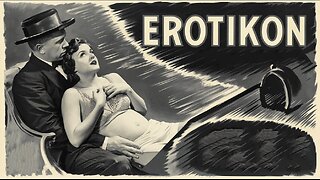 2:01:24
2:01:24
Lost n Found Films
8 days agoEROTIKON (1929) Karel Schleichert, Ita Rina & Olaf Fjord | Drama | Timeless Film
187 -
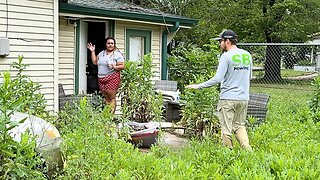 46:18
46:18
SB Mowing
2 days agoShe was LOSING HOPE but this SURPRISE CHANGED EVERYTHING
10.5K37 -
 LIVE
LIVE
ItsLancOfficial
5 hours agoWE LIVE 🔴WE LIVE 🔴 SUNDAY SUNDAYS!!!!!!! TARKOV
654 watching -
 4:09:32
4:09:32
EricJohnPizzaArtist
6 days agoAwesome Sauce PIZZA ART LIVE Ep. #59: Are You Ready for some FOOTBALL with GameOn!
10.3K7 -
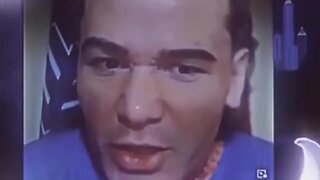 1:21:43
1:21:43
Jake Shields' Fight Back Podcast
11 hours agoJake Shields and Paul Miller!
43.5K83 -
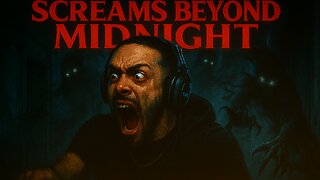 1:20:41
1:20:41
TRAGIKxGHOST
2 hours agoTrying to get SCARED tonight! | Are You SCARED!? | Screams Beyond Midnight | Grab a Snack
6.17K2 -
 LIVE
LIVE
StuffCentral
4 hours agoI'm baaack (no you can't play with me.. unless you a healer)
117 watching -
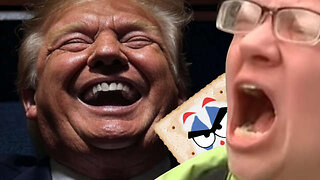 2:25:11
2:25:11
TheSaltyCracker
5 hours agoTrump Is Not Dead ReEEeStream 8-31-25
70.9K108 -
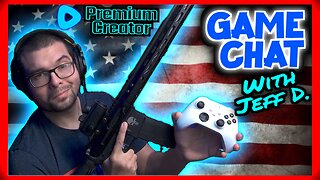 3:09:16
3:09:16
THOUGHTCAST With Jeff D.
3 hours ago $0.67 earnedLabor Day Weekend FORTNITE With THOUGHTCAST Jeff & the squad
11.7K4 -
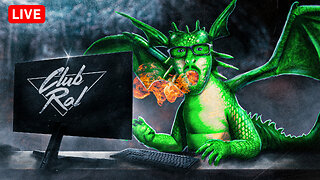 3:44:05
3:44:05
Rallied
6 hours ago $4.00 earnedSolo Challenges All Day
40.5K1